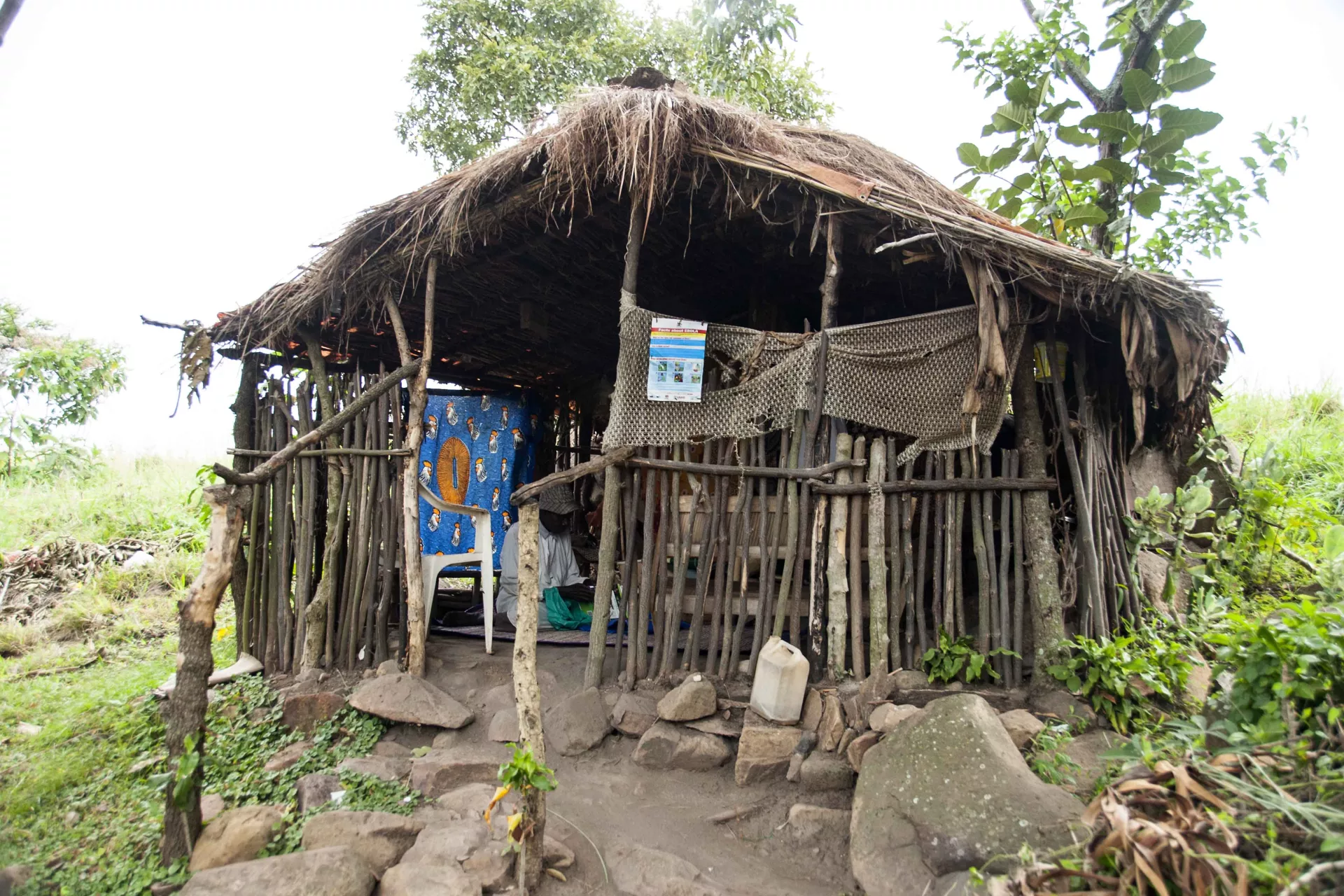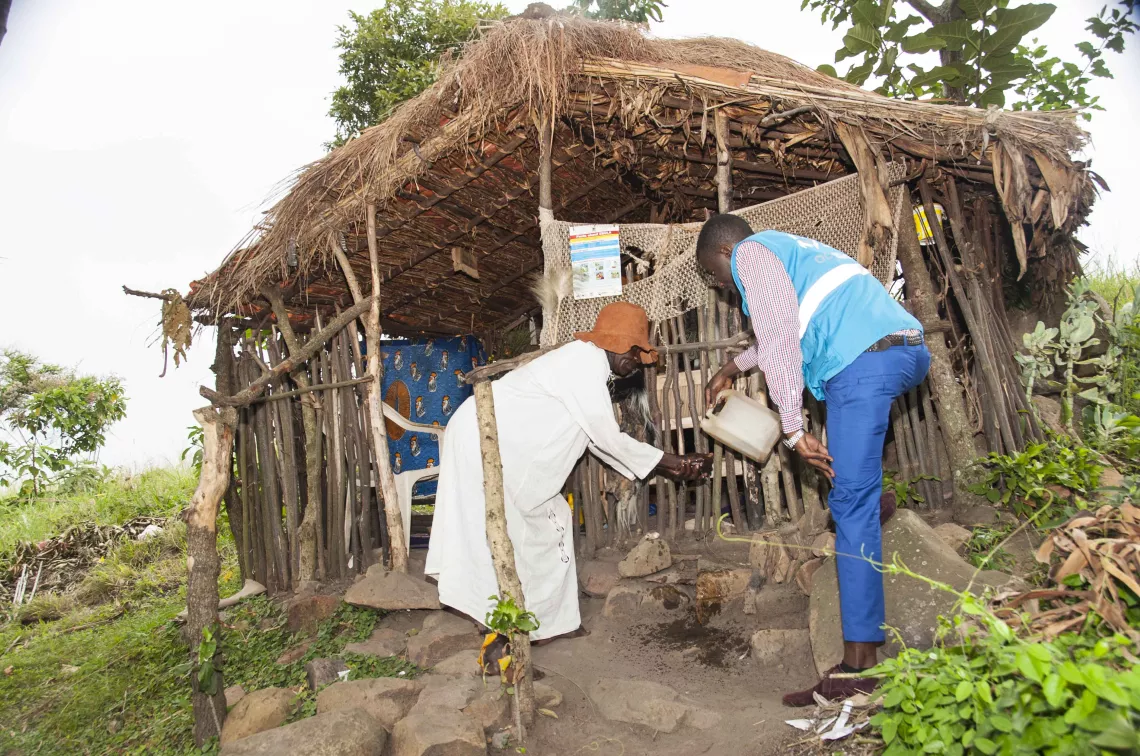Traditional healers in the fight to keep Uganda free of Ebola
"I ask them if they know about Ebola and I teach them what I know"

Traditional healers have for long claimed to have powers to heal anything – including Ebola. Some have duped unsuspecting people into paying their hard-earned moneys for healing in vain. John Tinkasiimire is not one of them though.
“I don’t cure Ebola,”
One of the latest development at his home in Kihamba in Kyegegwa District, western Uganda, is a hand washing facility for his visitors at home and another for his clients right outside the shrine where he performs his “spiritual” duties.
Tinkasiimire knows the Ebola Virus Disease toll free number (0800-100-066) like the back of his hand – thanks to the training he received as a community influencer by the LWF team. He says that whenever a client comes – and he has several – he demands to know where they are from and forces them to wash their hands with soap for over 90 seconds.

“Soap kills the Ebola virus. When I know that someone is from Congo, I will think twice before attending to them. Every client who comes here, I ask them if they know about Ebola and I teach them what I know,” he says pointing to an Ebola poster hoisted prominently on the shrine’s entrance.
He lashed out at some community members who peddle rumours that Ebola is some form of witchcraft explaining that it is a killer disease that spreads by contact and can be eliminated by proper hygiene and vigilance. Formal structures too such as churches, schools, local councils have also joined the concerted efforts to keep Kyegegwa Ebola free.
As Richard Mugabo, the Mweyare Parish Catholic Church Chairman of the Laity explains, the Church has had to abolish segments such as piece offerings where people shake hands.
“I have also proposed that during Holy Communion, the Reverend Fathers stop putting the ‘body of Christ’ in people’s mouths but rather on their palms as they would have washed them clean prior to entering Church. We can’t trust anyone – not even the Reverends,” he adds.
Due to the number of Congolese refugees that come into the district, Kyegegwa is considered vulnerable to an Ebola outbreak but the efforts from UNICEF, LWF and other partners have ensured that the deadly disease remains outside its borders with no case registered in the district despite the numerous alerts recorded.
UNICEF is supporting the Ministry of Health preparedness activities in high risk districts in western Uganda with funding from UKaid and UNCERF.




